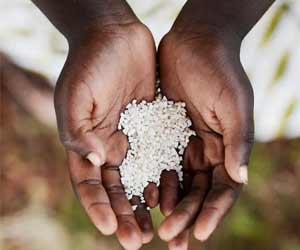- Food insecurity can elevate the risk of developing diabetes, hypertension, asthma, and mental disorders
- Increased stress is the direct precipitating factor for these diseases, although the major underlying cause is food insecurity
- Increasing food security could prevent the occurrence of these chronic disorders
The study, published in the Journal of General Internal Medicine, was led by Dr. Jason M. Nagata, MD, who is an Assistant Professor of Pediatrics at the UCSF School of Medicine, San Francisco, CA, USA.
Read More..
Key Findings of the Study
- 14,786 young adults, representing a nationwide population, were included in the study
- Participants were aged between 24 and 32 years
- The participants were divided into two groups:
- Food Secure Group
- Food Insecure Group
- 1,647 participants (11%) were found to be impacted by food insecurity
- Incidence of obesity was 7 percent higher in the food-insecure group (43%) compared to the food-secure group (36%)
- Incidence of diabetes was almost double in the food-insecure group (5.1%) compared to the food-secure group (2.2%)
- Incidence of hypertension was higher in the food-insecure group (16%) compared to the food-secure group (11%)
- Incidence of obstructive airway diseases such as asthma, emphysema or chronic bronchitis was higher in the food-insecure group (21%) compared to the food-secure group (14%)
- Rate of smoking was higher in the food-insecure group (46%) compared to the food-secure group (28%)
- Depression was higher in the food-insecure group (29%) compared to the food-secure group (15%)
- Suicide attempts within the past year were higher in the food-insecure group (3.6%) compared to the food-secure group (1.3%)
Plausible Explanations for the Study Findings
- Higher smoking rates could be associated with higher stress levels in the food-insecure group compared to the food-secure group
- Sustained stress arising from food-insecurity can lead to chronic inflammatory reactions, which could result in exacerbation of asthma
- Food insecurity results in inadequate nutrition, which decreases the ability to fight off infections, thereby elevating the risk of asthma
- Food insecurity increases the risk of developing mental health problems arising from the constant worry about where the next meal will come from
- Food insecurity can result in a heightened risk of developing anxiety, panic disorders, and insomnia
Expert Comments
“The cyclic nature of food insecurity, reflective of monthly paychecks and food assistance, may promote insulin resistance due to alternating periods of food abundance and food shortage,” says Nagata. “Other factors that may play a role in diabetes include the consumption of cheaper, calorie-dense foods with a high content of fats and carbohydrates, and a low intake of fresh fruits and vegetables.”"Chronic stress from food insecurity may contribute to insulin resistance, obesity and high blood pressure," says senior author Dr. Sheri Weiser, MD, MPH, who is an Associate Professor of Medicine at the UCSF School of Medicine. She adds: Stress can activate the neuroendocrine system and stimulate the release of glucocorticoids, which can alter metabolism, lead to increased fat accumulation and storage, and amplify binge-eating behavior."
Funding Source
The study was funded by the University of California Global Food Initiative Fellowship, the UCSF Norman Schlossberger Research Fund, the American Pediatric Society, and the American Academy of Pediatrics.Reference:
- Here’s How Food Insecurity Can Lead to Diabetes, High Blood Pressure, Asthma - (https://doi.org/10.3945/an.112.003277)
Source-Medindia
















